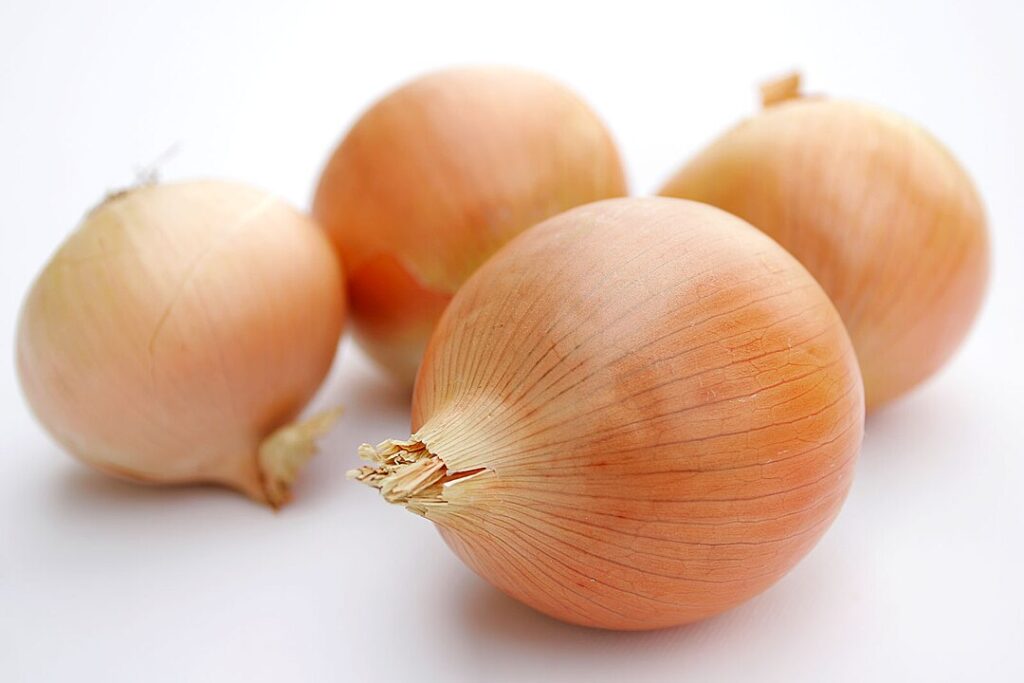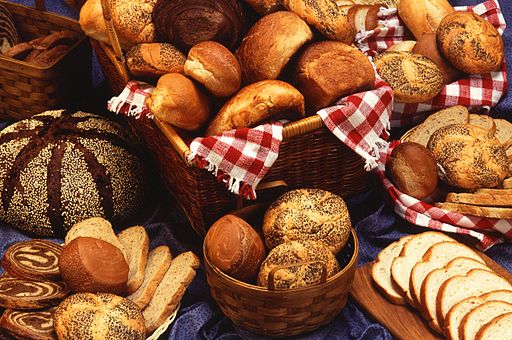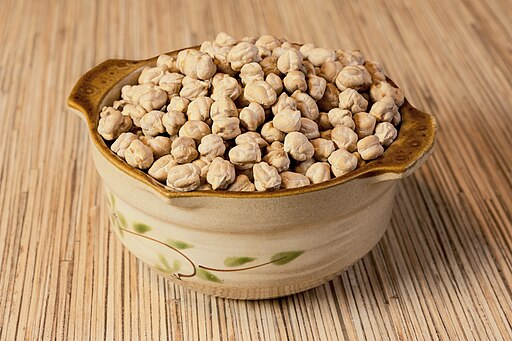Fruits high in FODMAPs (fermentable oligosaccharides, disaccharides, monosaccharides, and polyols) can worsen IBS symptoms. Examples include apples, pears, and watermelon. These fruits contain sugars that are not well absorbed in the small intestine, leading to fermentation and gas production.
4. High-FODMAP Vegetables

GFDL 1.2, https://commons.wikimedia.org/w/index.php?curid=662556
Similar to fruits, certain vegetables are high in FODMAPs and can trigger IBS symptoms. Vegetables like broccoli, cauliflower, onions, and garlic fall into this category. Cooking these vegetables can sometimes make them easier to digest.
5. Gluten-Containing Foods

Scott Bauer, U.S. Department of Agriculture, Public domain, via Wikimedia Commons
For some people with IBS, gluten—a protein found in wheat, barley, and rye—can be a trigger. Foods like bread, pasta, and cereals can cause bloating, gas, and diarrhea. Gluten-free alternatives are widely available and can be a good option for those sensitive to gluten.
6. Legumes

AlixSaz, CC BY-SA 4.0 https://creativecommons.org/licenses/by-sa/4.0, via Wikimedia Commons
Beans, lentils, and chickpeas are high in FODMAPs and can cause gas and bloating in people with IBS. While they are a good source of protein and fiber, their high FODMAP content makes them difficult to digest for some individuals.
7. Artificial Sweeteners

Evan-Amos, Public domain, via Wikimedia Commons
Sugar substitutes like sorbitol, mannitol, and xylitol, often found in sugar-free gum and candies, can cause digestive issues. These sugar alcohols are not fully absorbed in the small intestine, leading to fermentation and gas production.
Managing Your Diet
While these foods are common triggers, it’s important to remember that IBS affects everyone differently. Keeping a food diary can help you identify your specific triggers. Consulting with a healthcare provider or a dietitian can also provide personalized advice and help you manage your symptoms more effectively.
By being mindful of what you eat and making informed dietary choices, you can better manage your IBS and improve your quality of life.


